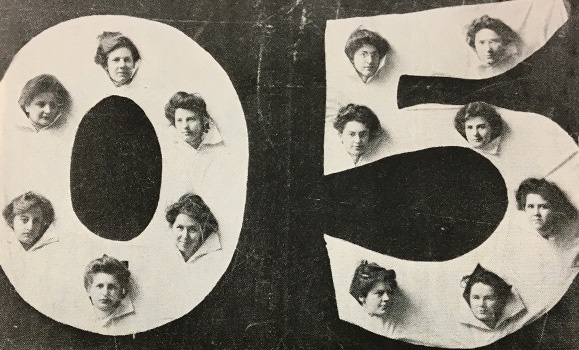 This article is part of an ongoing series highlighting plans in the works for DalhousieŌĆÖs 200th anniversary celebrations in 2018. For more features, visit our archives and learn more about Dal 200 at .
This article is part of an ongoing series highlighting plans in the works for DalhousieŌĆÖs 200th anniversary celebrations in 2018. For more features, visit our archives and learn more about Dal 200 at .
We already know a lot about pilipili┬■╗Ł's past thanks to the many efforts of university archivists and historians.
But as the university approaches its 200th anniversary, a new book project in the works aims to explore Dal's history from a different perspective: its visual culture.
"I thought it seemed like the perfect project for the 200th, to have a commemorative book that could be a souvenir for staff, graduates and people in the community," says Mona Holmlund, an assistant professor in the Department of History and the book's author. ┬Ā
The book will take readers on a visual journey across the university's first two centuries through a curated selection of photographs, three-dimensional items that will be treated as artifacts (memorabilia, old newspapers, etc.), and other visual ephemera.
Rather than organize the book chronologically, Dr. Holmlund and collaborator Kim Pittaway ŌĆö editor on the project ŌĆö decided to structure it around six distinct themes that capture the spirit of the Dal experience.
There will be chapters on place, academic traditions and celebrations, research and teaching, DalŌĆÖs impact in the world, and extracurricular and residence life, as well as a final interactive chapter called ŌĆśMy DalŌĆÖ where readers can insert their own photos and mementos.
ŌĆ£What I hope it will accomplish is to cause the readers to think about their own relationships with this place and see themselves as part of a larger whole,ŌĆØ says Dr. Holmlund.
A thematic approach
Material will be sourced primarily from the University Archives. Images from bicentennial celebrations will be woven in throughout.
Dr. Holmlund sees the project as akin to a curated exhibition about pilipili┬■╗ŁŌĆÖs history ŌĆö but rather than a time-limited event, itŌĆÖs captured in a more permanent form that can be shared with future generations.
New Brunswick-based Goose Lane Editions will publish the book in the fall of 2018. The 140-page, full-colour hardcover publication will have the look and feel of a coffee-table book rather than a traditional history tome.
Approaching the book thematically made sense given the materials available, says Pittaway, who is consulting editor for Dal Magazine and executive director of the University of KingŌĆÖs College MFA in Creative Nonfiction program.
ŌĆ£We knew that if we took a strictly chronological approach that would mean that weŌĆÖd be light on visuals for a pretty big chunk of the universityŌĆÖs history,ŌĆØ she says, noting the bulk of the imagery they have access to really kicks in around the end of the First World War ŌĆö a full century after DalŌĆÖs founding.
"Telling the story thematically allowed us to make sure that we were hitting notes that relate to that first century, but still kept the content visually interesting on the page.ŌĆØ
She says captions will be used for storytelling throughout, supplementing introductory essays by Dr. Holmlund at the beginning of the book and each chapter.
Due out fall 2018
Pre-promotion of the book will begin in early 2018 ahead of the fall release. Dr. Holmlund says she hopes the book will satisfy peopleŌĆÖs urge to look to the past but also encourage them to look to DalŌĆÖs future as it enters its third century.
ŌĆ£ItŌĆÖs nostalgic for people who have experienced this place at different times, but itŌĆÖs also aspirational,ŌĆØ she says. ŌĆ£What could we make out of the past 200 years? What directions should we go in?ŌĆØ

